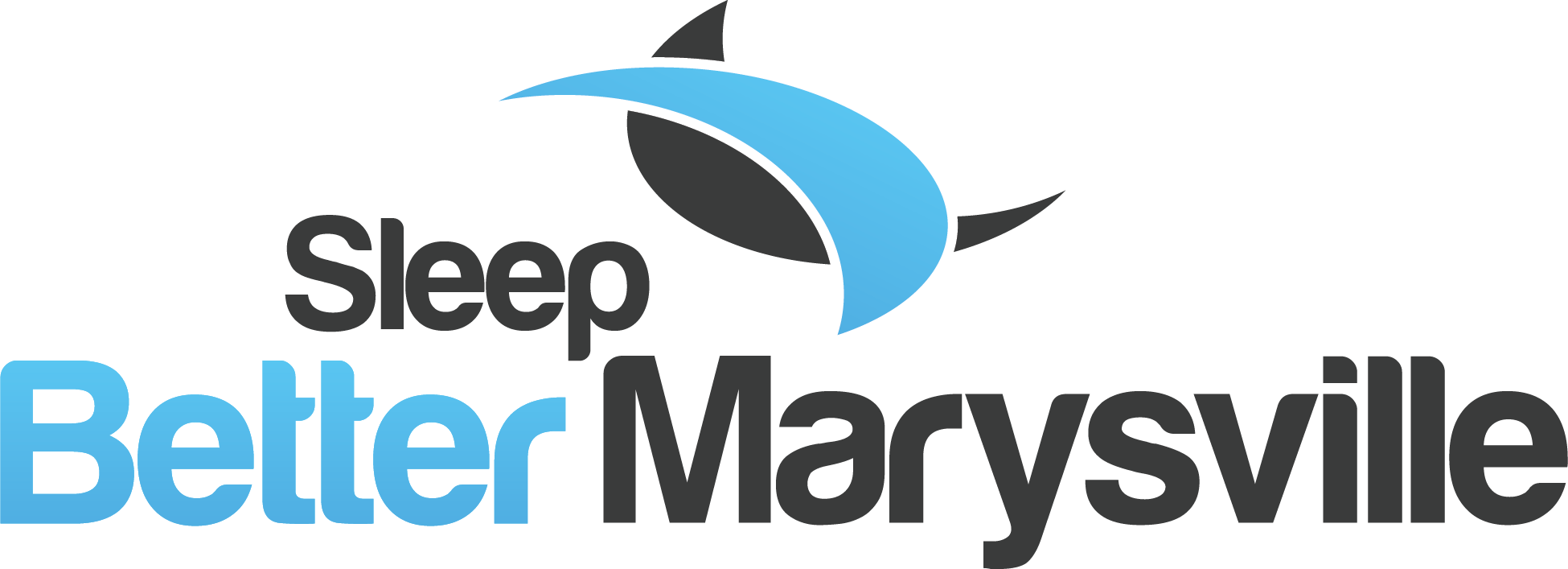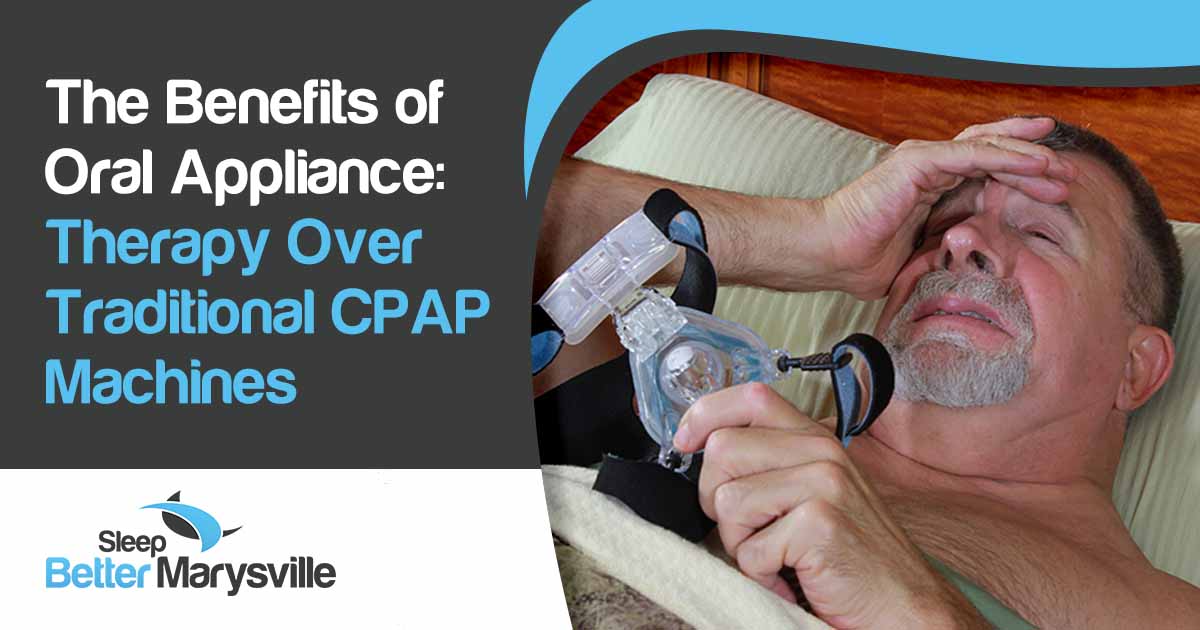Sleep apnea is a common sleep disorder that affects many individuals, often without them even realizing it. While various sleep apnea treatments are available, many people find that oral appliance therapy offers a more comfortable and practical solution compared to traditional CPAP (Continuous Positive Airway Pressure) machines. This blog explores the benefits of oral appliance therapy and how it can be a suitable alternative for those who struggle with the discomfort and restrictions of CPAP machines.
Understanding Sleep Apnea and Its Impact on Health
What is Sleep Apnea?
Sleep apnea is a condition where breathing stops and starts during sleep. These pauses, called apneas, can last seconds to minutes and often happen at night. The most common type is obstructive sleep apnea (OSA), which occurs when the throat muscles relax too much, temporarily blocking the airway.
The Health Risks Associated with Untreated Sleep Apnea
If left untreated, sleep apnea can lead to a range of serious health issues. These may include high blood pressure, heart disease, stroke, diabetes, and even daytime fatigue and poor cognitive function. Because individuals with sleep apnea often stop breathing repeatedly during the night, their quality of sleep is significantly reduced, leading to ongoing tiredness and poor overall health. Therefore, it is essential to seek effective treatment to address this condition. Oral appliance therapy is one of the most effective, non-invasive treatments for mild to moderate obstructive sleep apnea.
What is Oral Appliance Therapy?
How Oral Appliances Work to Treat Sleep Apnea
Oral appliance therapy uses a specially designed device, known as a mandibular advancement device (MAD), to treat sleep apnea. The device works by gently shifting the lower jaw and tongue forward, helping to maintain an open airway during sleep. This promotes smoother, continuous breathing and decreases the occurrence of apnoeas, resulting in improved sleep quality.
These devices are typically worn at night, offering a comfortable and discreet solution compared to CPAP machines. The goal is to prevent the airway from collapsing and to reduce or eliminate the snoring and breathing disruptions associated with sleep apnea.
Types of Oral Appliances Available
Several types of oral appliances are available for treating sleep apnea. Some of the most common include:
- Mandibular Advancement Devices (MADs): These devices are designed to reposition the jaw forward, which helps keep the airway open. MADs are often the preferred option for treating obstructive sleep apnea.
- Tongue-retaining devices (TRDs): These devices work by holding the tongue in a forward position to prevent it from collapsing into the airway during sleep. They are typically used for individuals with mild obstructive sleep apnea or those who cannot tolerate MAD.
Dental professionals custom-fit Both types of devices to ensure comfort and effectiveness. Regular adjustments and follow-up appointments may be necessary to optimize the fit and performance of the appliance.
The Benefits of Oral Appliance Therapy
Improved Comfort and Convenience
One key benefit of oral appliance therapy is the improved comfort it offers compared to CPAP machines. Unlike CPAP devices, which require wearing a mask over the nose or mouth and are connected to a machine, oral appliances are small, lightweight, and fit comfortably in the mouth. The design of these devices allows for greater mobility during sleep without the discomfort of straps or hoses associated with CPAP machines. This makes oral appliance therapy a more user-friendly and less intrusive treatment option.
Portability and Discreetness
Oral appliances are incredibly portable, making them ideal for individuals who travel frequently or want a discreet treatment solution. Unlike CPAP machines, which can be bulky and difficult to transport, oral appliances are compact and easy to pack. Their small size makes them less noticeable, allowing users to wear them without attention. This discretion is a significant advantage for people who are self-conscious about using a CPAP machine, especially when staying at friends’ houses or traveling for business.
Enhanced Compliance and Better Sleep Quality
Many people with sleep apnea struggle to use their CPAP machines consistently due to the discomfort, noise, or the intrusive nature of the device. In contrast, oral appliance therapy tends to have higher compliance rates. The simplicity and comfort of oral appliances encourage individuals to use them consistently, which leads to improved sleep quality over time. Better sleep helps reduce the risks associated with sleep apnea, such as daytime fatigue and health complications, allowing individuals to feel more rested and alert during the day.
Less Disruption to Your Sleep Routine
CPAP machines can often disrupt a person’s natural sleep routine due to their complex setup, noise, and the need to adjust the mask at night. On the other hand, oral appliances are simple to use and do not require additional equipment or noise. Once the appliance is in place, individuals can fall asleep without distractions, allowing them to maintain a more consistent and restorative sleep cycle.
Comparing Oral Appliance Therapy to CPAP Machines
CPAP Machine Overview and How It Works
CPAP machines are a standard treatment for moderate to severe obstructive sleep apnea. They deliver a constant air stream through a mask that keeps the airway open during sleep. This continuous airflow prevents apnoeas by ensuring that the airway remains clear. CPAP therapy is highly effective for many individuals, particularly those with more severe cases of sleep apnea.
However, while CPAP machines can be effective, they can also be uncomfortable and inconvenient. Many users find the mask tight or painful, and the machine’s noise can be disruptive to both the user and their sleeping partner.
The Challenges of Using CPAP Machines
Despite their effectiveness, CPAP machines have several drawbacks affecting compliance and long-term use. The most common issues include:
- Discomfort: The CPAP mask can be uncomfortable, especially if it doesn’t fit properly. The straps can cause pressure on the face, and the mask may cause skin irritation or difficulty breathing through the nose.
- Noise: The sound of the CPAP machine can disturb both the user and their partner, leading to poorer sleep quality for both.
- Portability: CPAP machines are bulky and require a power source, making them less ideal for travel or for those who prefer a more discreet treatment option.
For many individuals, these challenges can make consistent use of a CPAP machine difficult, reducing its effectiveness and leading to lower overall satisfaction with treatment.
Why Oral Appliance Therapy is a Viable Alternative
Oral appliance therapy offers a practical alternative to CPAP treatment. It addresses many common issues with CPAP machines, such as discomfort and noise. Since oral appliances are small, portable, and comfortable, they often result in higher compliance rates. They also provide a more discreet solution, which may appeal to individuals who are self-conscious about using a CPAP machine in social or travel situations.
In comparison, oral appliances are more convenient and less disruptive, particularly for individuals with mild to moderate sleep apnea. They are easy to use, require minimal maintenance, and have been shown to improve sleep quality and reduce the health risks associated with untreated sleep apnea. For many, oral appliance therapy is a viable and effective alternative to CPAP machines.
Who Can Benefit from Oral Appliance Therapy?
Ideal Candidates for Oral Appliance Therapy
Oral appliance therapy is generally recommended for individuals with mild to moderate obstructive sleep apnea (OSA). It can also be suitable for individuals with snoring issues without significant apnoeas. Ideal candidates for oral appliance therapy are typically those who:
- Experience moderate to mild obstructive sleep apnea.
- Difficulty tolerating a CPAP machine due to discomfort, noise, or inconvenience.
- Travel frequently or seek a more portable, discreet treatment.
- Prefer a non-invasive treatment option that does not involve surgery or continuous airflow machines.
Oral appliances are also effective for people who struggle with nasal congestion or have difficulty breathing through their nose, as these devices focus on keeping the airway open by repositioning the lower jaw rather than relying on nasal airflow.
When Oral Appliances Are Preferred Over CPAP Machines
While CPAP machines are often the first-line treatment for more severe cases of sleep apnea, oral appliances are generally preferred when the following conditions are met:
- Mild to Moderate Sleep Apnea: Individuals with mild or moderate sleep apnea may find oral appliances more comfortable and effective than CPAP machines.
- Poor CPAP Compliance: If someone has tried CPAP therapy without success, often due to discomfort or difficulty adhering to the treatment, an oral appliance may provide a more viable solution.
- Snoring Issues: People who experience chronic snoring but do not have severe sleep apnea can benefit from using an oral appliance to reduce snoring and improve sleep quality.
Individuals must consult with a healthcare provider to determine if oral appliance therapy is appropriate for their specific condition. A thorough evaluation, including a sleep study, is recommended before choosing the best treatment option.
Ready to Experience Better Sleep? Contact Sleep Better Marysville for Expert Oral Appliance Therapy Solutions
If you are struggling with sleep apnea or snoring and are looking for a comfortable, portable, and practical treatment option, oral appliance therapy could be the solution you need. Sleep Better Marysville offers expert consultation and custom-fitted oral appliances to help you achieve better sleep quality and overall health. Contact us today at (614) 777-7350 to learn how oral appliance therapy can positively impact your life.

